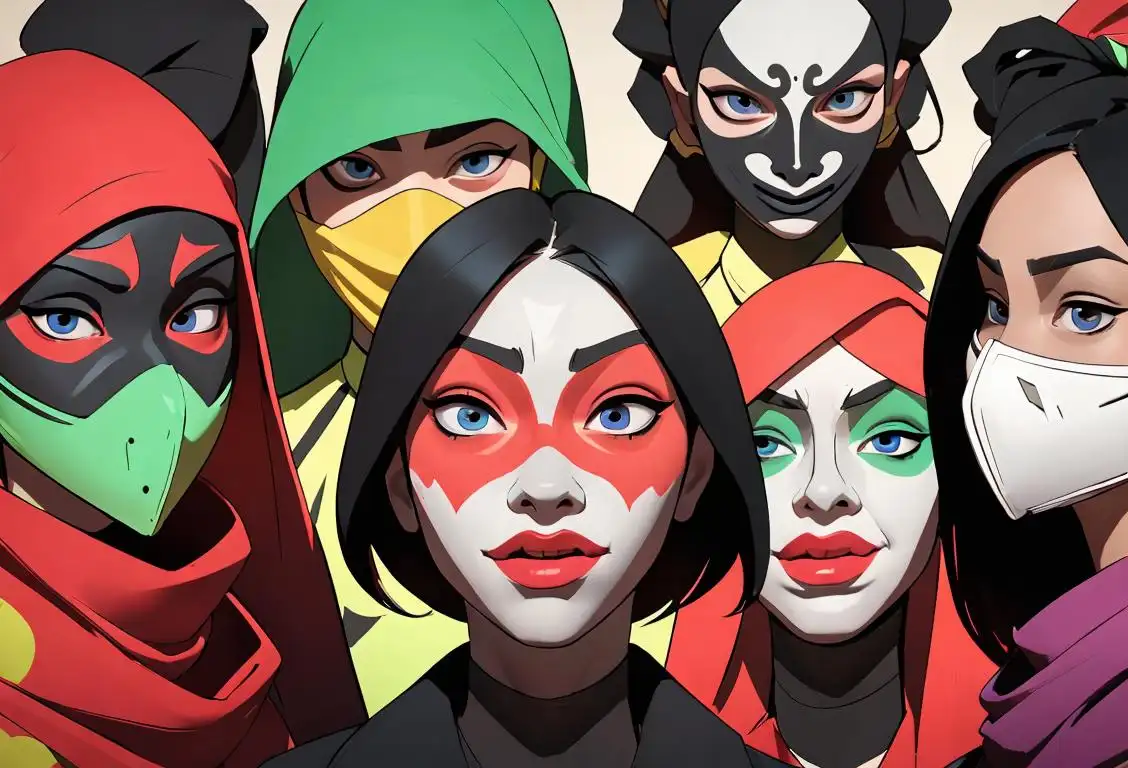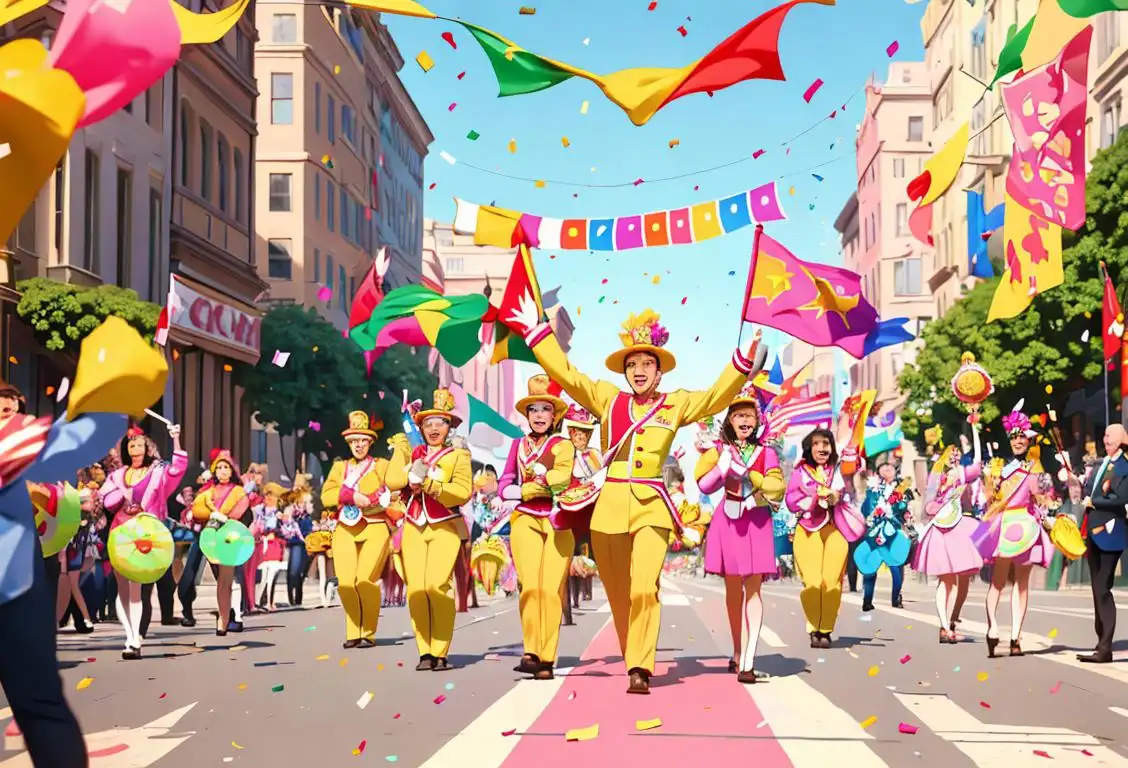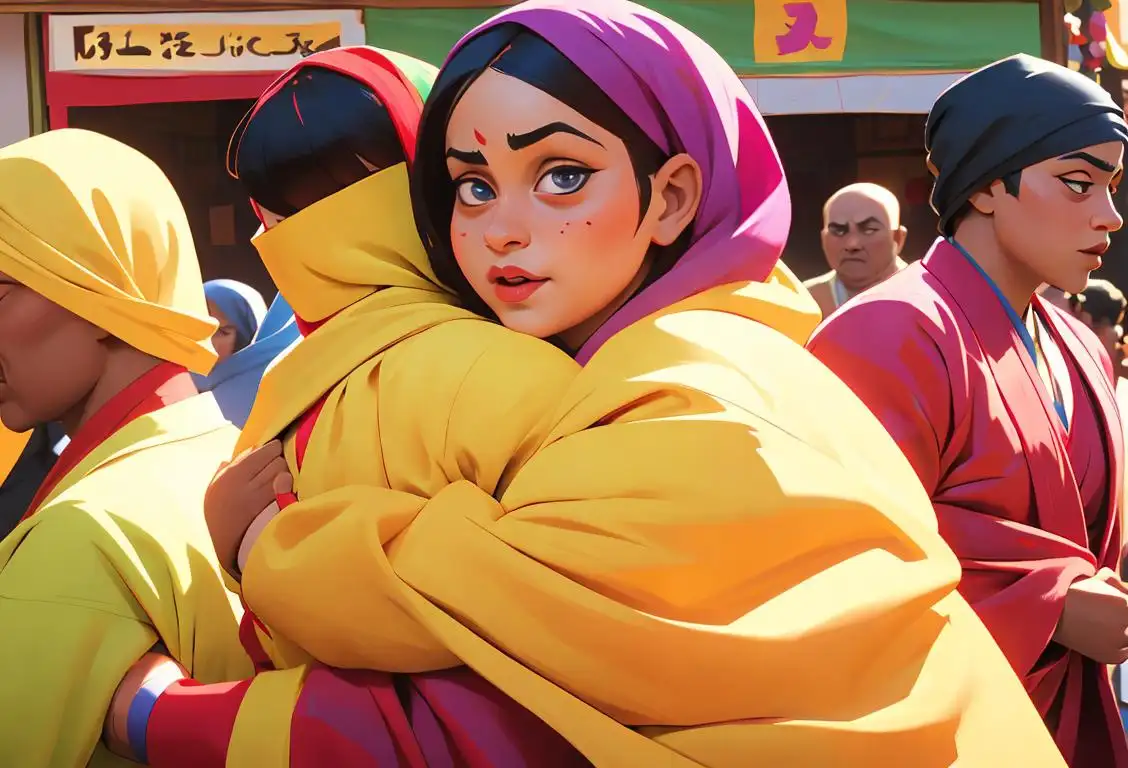National Mask Day

Welcome to National Mask Day, where we celebrate the power of disguise and the importance of keeping things under wraps! Whether you're donning a mask to blend in with the crowd or to unleash your inner superhero, this day is all about embracing the intrigue and mystery that masks bring. So, grab your favorite mask and join in the festivities!
When is Mask Day?
It's national mask day on the 24th July.
The Origins of National Mask Day
Have you ever wondered why people wear masks? Well, National Mask Day is the perfect opportunity to dive into the fascinating history behind this age-old tradition. Masks have been used for centuries across different cultures and contexts. They've been employed for ceremonial, religious, theatrical, practical, and even fashionable purposes.
In ancient times, masks were used in religious rituals to connect with deities and spirits. They allowed individuals to disguise themselves and enter a sacred state of being. The tradition of wearing masks in theater also dates back to ancient Greece, where actors would wear masks to portray different characters on stage.
Fast forward to the modern era, and masks have taken on new meanings and uses. From masquerade balls to the beloved superheroes we know and adore, masks have become a symbol of empowerment, disguise, and transformation. They allow us to step into different identities, unleash our creativity, and protect our privacy.
Celebrating National Mask Day
So, how can you celebrate National Mask Day? The possibilities are endless! You could throw a masquerade party and invite your friends to come dressed in their most extravagant masks. Host a costume contest to see who can create the most jaw-dropping mask. Or why not unleash your artistic side and design your own unique mask? Get creative with colors, patterns, and materials to make it truly one-of-a-kind.
If you're feeling adventurous, consider exploring different cultures' mask traditions. Research the significance of masks in African, Asian, or Native American cultures, and gain a deeper appreciation for the diverse ways masks have been used throughout history.
Did You Know?
Did you know that masks aren't just for humans? Some animals also use masks to survive in the wild. Take the raccoon, for example. Its distinct facial markings make it appear as if it's wearing a cool bandit mask. Talk about a natural-born trickster!
History behind the term 'Mask'
Circa 12,000 BCE
Ancient Ritualistic Beginnings
Masks have ancient origins, tracing back to the Paleolithic era, where early humans used animal skulls, shells, and wood to create imaginative masks for religious and spiritual rituals. These masks were believed to possess magical and transformative powers, enabling humans to connect with the spirit world and harness their energy.
Circa 2,000 BCE
Egyptian Burial Masks
In ancient Egypt, wealthy individuals were often buried with intricately crafted masks made of gold, gemstones, and various precious materials. These masks, called funeral masks or death masks, played a significant role in the afterlife beliefs of the Egyptians, as they believed the mask would help guide the deceased person's soul through the underworld to the afterlife.
5th Century BCE
Greek Theater Masks
The use of masks expanded to the realm of theater in ancient Greece. Actors wore large, expressive masks during performances to convey different emotions and amplify their voices, allowing them to be seen and heard by the audience more clearly in the vast amphitheaters. These masks served as a visual and auditory aid, enhancing the theatrical experience.
14th Century CE
Venetian Carnival Masks
During the 14th century, Venice, Italy, became famous for its elaborate and mysterious carnival celebrations. Masks played a central role in these festivities, allowing people to hide their social status, engage in forbidden activities, and express themselves freely without fear of recognition or judgment. Masks became synonymous with the Venetian Carnival, creating a sense of intrigue and anonymity.
Late 19th Century
Theatrical Masks in Modern Performance
Theatrical masks regained popularity in the late 19th century with the rise of avant-garde theatrical movements like Symbolism and Expressionism. Artists and actors embraced masks as a means of exploring the human psyche, uncovering hidden emotions, and challenging conventional theatrical norms. This movement led to the incorporation of masks into various modern theater forms, such as Japanese Noh, Commedia dell'arte, and contemporary mask theater.
21st Century
Masks in Everyday Life
In recent times, masks have gained widespread recognition and usage due to global health concerns, particularly during the COVID-19 pandemic. Masks have transitioned from being primarily associated with rituals, performances, and celebrations to becoming an essential part of daily life for protecting public health. This shift highlights the adaptability and evolving significance of masks throughout history.
Did you know?
Did you know that masks aren't just for humans? Some animals also use masks to survive in the wild. Take the raccoon, for example. Its distinct facial markings make it appear as if it's wearing a cool bandit mask. Talk about a natural-born trickster!Tagged
fun celebration culture fashionFirst identified
20th December 2019Most mentioned on
24th July 2020Total mentions
133Other days
Mask Day
Parade Will Be Either The Day
Moving To Canada Day
Bao Day
Handbag Day
Batik Day
Chili Day
Comic Book Day
Canadian Film Day
Juloos Day








